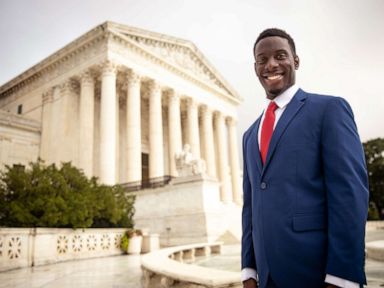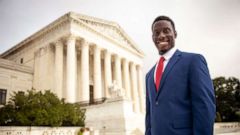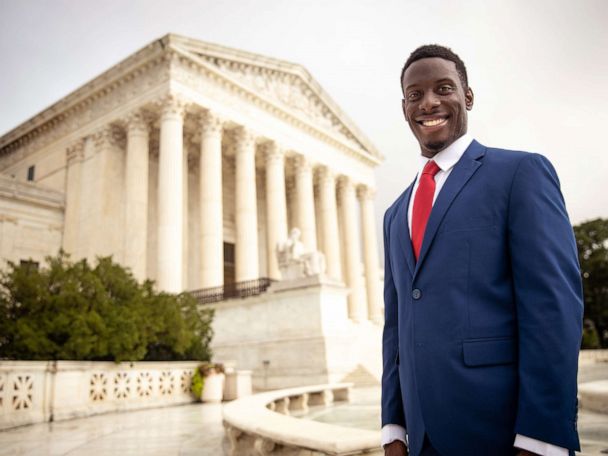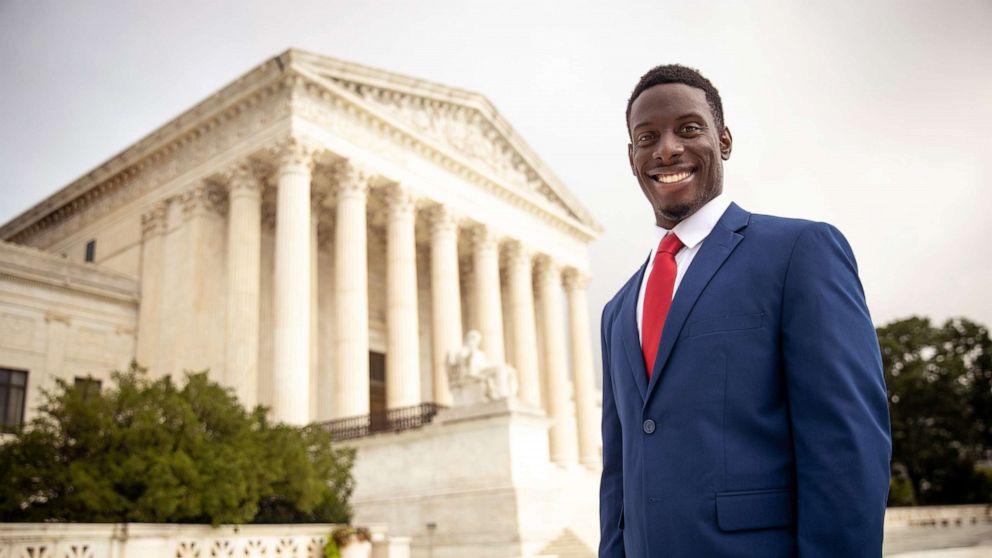





Chief Justice John Roberts was alone in dissenting from the decision.
The U.S. Supreme Court on Monday sided with a former Georgia college student who sued his school after it prevented him from expressing religious views in a free-speech zone on campus.
The 8-1 decision, authored by Justice Clarence Thomas, said that Chike Uzuegbunam — who was silenced by Georgia Gwinnett College officials even after he had obtained a permit to proselytize and handout religious literature — can seek nominal damages despite the fact that the school ultimately changed course and Uzuegbunam subsequently graduated.
In a very rare alignment of votes, Chief Justice John Roberts was the lone dissenting justice in the case.
“It is undisputed that Uzuegbunam experienced a completed violation of his constitutional rights when respondents enforced their speech policies against him,” wrote Justice Thomas. “Because ‘every violation [of a right] imports damage,’ nominal damages can redress Uzuegbunam’s injury even if he cannot or chooses not to quantify that harm in economic terms.”
Nominal damages — even as little as $1, for example — are awarded in cases where a person has been harmed by illegal conduct but not suffered significant financial loss. First Amendment advocates called the decision a win for free speech and religious expression.
“When public officials violate constitutional rights, it causes serious harm to the victims,” said Kristen Waggoner, an attorney for Alliance Defending Freedom, which represented Uzuegbunam in the case. “When such officials engage in misconduct but face no consequences, it leaves victims without recourse, undermines the nation’s commitment to protecting constitutional rights, and emboldens the government to engage in future violations. We are pleased that the Supreme Court weighed in on the side of justice for those victims.”
Justices Neil Gorsuch, Samuel Alito, Brett Kavanaugh, Amy Coney Barrett, Stephen Breyer, Elena Kagan, and Sonia Sotomayor all joined Thomas in the opinion, which reversed two lower court rulings that agreed with the school in calling the case moot.
“I agree with the Court that, as a matter of history and precedent, a plaintiff’s request for nominal damages can satisfy the redressability requirement for Article III standing and can keep an otherwise moot case alive,” Justice Kavanaugh wrote in a concurring opinion.
Roberts argued that the courts had no place getting involved in the dispute because it was no longer an issue.
Uzuegbunam and a fellow evangelical Christian student suing the school, Roberts wrote, “are no longer students at the college. The challenged restrictions no longer exist. And the petitioners have not alleged actual damages. The case is therefore moot because a federal court cannot grant Uzuegbunam and Bradford any effectual relief whatever.'”

